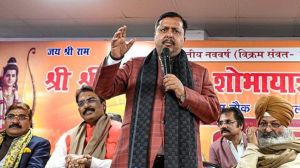Hugo146;s reality check
Venezuela8217;s president must ask himself why he couldn8217;t win the referendum despite the carrots.

When people vote against a referendum that would cut their maximum working day from eight hours to six, you know that there must have been something else on the menu that left them unenthused. Venezuela8217;s president, Hugo Chavez, has lost 8212; extremely narrowly 8212; a vote that, among other constitutional reforms, would have allowed him to bid to be re-elected as president a second time. Chavez, as his numerous fans in the Left worldwide know, is not a man used to defeat. No wonder his words of graceful concession, 8220;for now, we couldn8217;t do it,8221; harked back to 1992. Those are the words he had uttered then, when his attempt to gain power in Venezuela in a coup failed. Chavez saw the referendum as a way of moving forward his 8220;socialist revolution8221;, but the question of the moment is: if he lost, who won?
To answer that question, consider Venezuela8217;s peculiar polity. The opposition is in disarray, and the campaign against the referendum was led more by students than politicians. Chavez8217;s re-election as president less than a year ago was all the more sweeping because there was no one person who was seen as a winning alternative. But, realising that a referendum is a different thing, that to defeat his proposals voters do not have to consider an alternative, he invoked an opponent: the American president. 8220;Who votes yes is for Chavez,8221; he said during the campaign. 8220;Who votes no is voting for George W. Bush.8221;
Chavez, the strongman of the Left who wins supporters by his air of invincibility, must be shattered. Chavez8217;s way has been to use Venezuela8217;s considerable revenues from oil to finance populist schemes that would otherwise have been uneconomic, especially given his steadfast pursuit of nationalisation. He has given this 8220;socialist revolution8221; an ideological fervour by stirring anti-Americanism. Last year he went to the UN a day after Bush, saying he could still smell sulphur left behind by 8220;the devil8221;. Wonder if 8220;the devil8221;, in his last dreary months in the White House, wears a smile today.
- 01
- 02
- 03
- 04
- 05































